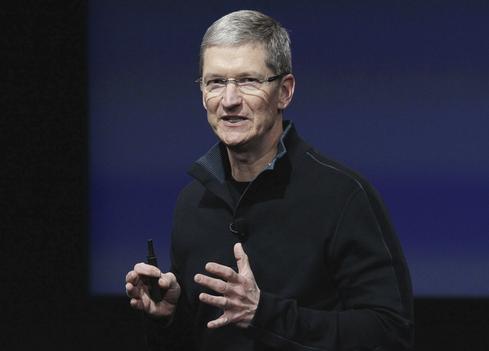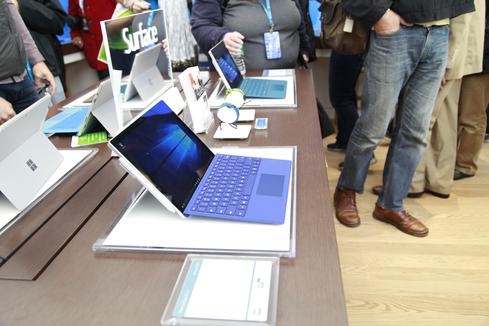In an interview with an Irish newspaper Apple CEO Tim Cook said there are no plans to create a Mac and iPad hybrid.

Surface Pro 4 Vs. iPad Pro: High-End Hybrid Showdown
Surface Pro 4 Vs. iPad Pro: High-End Hybrid Showdown (Click image for larger view and slideshow.)
As the iPad Pro became available to the public last week, Apple CEO Tim Cook oversaw the launch from the UK in what appears to have been an effort to bring some international recognition to the company's new business-minded tablet.
During the trip, Cook spoke with The Telegraph on Nov. 10, and asked a meta-rhetorical question while discussing the new product: "I think if you're looking at a PC, why would you buy a PC anymore? No really, why would you buy one?"
When Cook says "PC," he clearly means either a Microsoft Windows-based machine, a Linux PC, or a Chromebook -- for the truly geeky.
However, Cook does think that a substitution effect will occur.
"Yes, the iPad Pro is a replacement for a notebook or a desktop for many, many people," Cook said during his interview with the Telegraph. "They will start using it and conclude they no longer need to use anything else, other than their phones."
However, Cook says he doesn't believe the future holds any place for a "converged" device that combines the Mac and the iPad. To emphasize that point, he told The Independent in Ireland on Nov. 15:
We feel strongly that customers are not really looking for a converged Mac and iPad. Because what that would wind up doing, or what we're worried would happen, is that neither experience would be as good as the customer wants. So we want to make the best tablet in the world and the best Mac in the world. And putting those two together would not achieve either. You'd begin to compromise in different ways.
Cook could have also been sending a subtle dig at one his company's rivals. In this case, not Microsoft, but Google, since it appears the company is moving closer to merging Chrome OS and Android, although Google has not officially said so specifically.
However, underlying Cook's statement is the fact Apple really has two software operating systems that it currently supports, Mac OS X and iOS. Each has been developed under certain assumptions -- the smaller screen of the iPhone for iOS 9, for example -- and the two operating systems have differing capabilities.
Mac OS X adheres more to traditional computing operational concepts like local storage of data and individual file manipulation. iOS was built for a cloud data storage model and apps that control file data manipulation without much direct user input.
Mac OS X and iOS have totally different system architectures.
As an example, one major operational difference between the two is multitasking. Multiple application windows can be open at the same time and are switchable without interruption. Multitasking can be done simply on Mac OS X and is limited only by the memory available. This feature is constrained in iOS 9 to the Split View that handles only two side-to-side views of applications, and only if the feature has been coded into the specific app.
[Read more about the technology behind the iPad Pro.]
Indeed, iOS is made for a less complicated model of computing than Mac OS X, which may be just fine for some. If all one wishes to do is to consume information through a browser or app, then there is little difference between the two operating systems. In that case, both will do that well.
However, Cook is spot-on to think that some will want their computers to do much more than what a large, fast iPad can perform for them. Apple is addressing both styles of computer use by providing products optimized for both segments of the market. One merged machine will not bind them all here.
**New deadline of Dec. 18, 2015** Be a part of the prestigious InformationWeek Elite 100! Time is running out to submit your company's application by Dec. 18, 2015. Go to our 2016 registration page: InformationWeek's Elite 100 list for 2016.
About the Author(s)
You May Also Like








